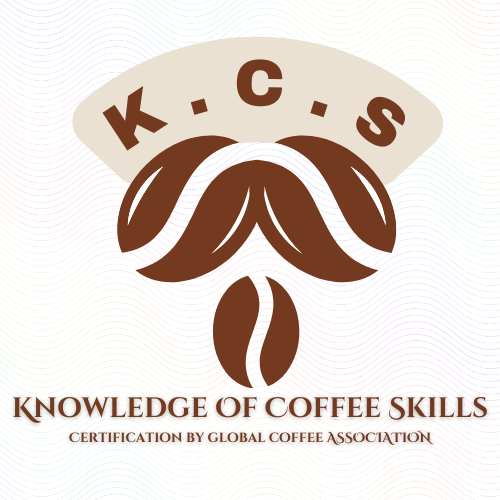The Kenya Coffee School – KCS (Knowledge of Coffee Skills) Certification is a structured program designed to validate expertise across various aspects of coffee, from farming to brewing. While there isn’t a single global “KCS” standard (unlike SCA or CQI), the term is sometimes used by training institutions or coffee organizations to denote a comprehensive coffee education framework. Below is a breakdown of typical KCS certification standards, modeled after industry best practices (similar to SCA/CQI/illy’s approach).
KCS Certification Standards – Key Modules & Levels
1. Coffee Farming & Processing
Level 1 (Foundation)
- Coffee plant biology (Arabica vs. Robusta)
- Harvesting methods (selective picking, strip picking)
- Processing techniques (washed, natural, honey)
- Basic pest/disease management
Level 2 (Intermediate/Professional)
- Advanced soil & climate analysis
- Fermentation control & experimental processing
- Sustainable farming certifications (Organic, Rainforest Alliance)
Level 3 (Expert/Master)
- Farm economics & yield optimization
- Genetic varietals & hybrid development
- Climate resilience strategies
2. Green Coffee & Quality Control
Level 1
- Basics of green coffee grading (defects, size, density)
- Introduction to cupping (KCS/SCA protocol)
Level 2
- Advanced defect identification
- Moisture content & storage best practices
- Export/import logistics
Level 3
- Q Grader-level sensory skills (CQI alignment)
- Auction systems & direct trade negotiations
3. Coffee Roasting
Level 1
- Roast phases (drying, Maillard, development)
- Basic roast profiling (light, medium, dark)
Level 2
- Machine types (drum, air, hybrid)
- Roast curve analysis & software tools
Level 3
- Green coffee blending for consistency
- Roastery business management
4. Barista Skills & Brewing
Level 1
- Espresso extraction fundamentals
- Milk steaming & basic latte art to Advanced latte art
Level 2
- Alternative brewing (AeroPress, V60, cold brew)
- Advanced latte art (multi-pour designs)
Level 3
- Competition-level techniques
- Water chemistry & custom recipes
5. Sensory & Cupping
Level 1
- Basic taste recognition (sweet, sour, bitter, salt, umami)
- KCS/SCA cupping protocol introduction
Level 2
- Flavor wheel application
- Triangulation tests & defect identification
Level 3
- Calibration with global coffee standards
- Jury-level sensory evaluation
6. Coffee Business & Value Chain
Level 1
- Supply chain overview (farm to cup)
- Introduction to certifications (Fair Trade, Direct Trade)
Level 2
- Café profitability & cost control
- Green coffee purchasing strategies
Level 3
- Export/import regulations
- Sustainability reporting & carbon footprinting
Assessment & Certification
- Written Exams (theory on coffee science, processing, etc.)
- Practical Exams (e.g., roasting to a specific profile, brewing to extraction standards)
- Sensory Tests (cupping, triangulation, defect identification)
Comparison to Other Certifications
| Aspect | KCS (4A Grader) | SCA | CQI (Q Grader) |
|---|---|---|---|
| Focus | Holistic coffee skills | Specialty coffee standards | Green coffee & sensory expertise |
| Levels | 1–3 (Foundation to Master) | 3 (Intro, Intermediate, Pro) | Single (Q Grader) |
| Practical Exams | Yes (Transcripts Digitally Verified QR Code, Digital Badges) | Yes | Rigorous sensory tests |
| Global Recognition | Highly recognized | Highly recognized | Industry gold standard |
Who Should Pursue KCS Certification?
- Baristas seeking structured career progression
- Roasters wanting to standardize quality control
- Farmers/Exporters aiming to improve marketability
- Coffee Entrepreneurs (café owners, green buyers)
Institutions Offering KCS-Aligned Programs
- illy’s University of Coffee
- Lavazza Coffee Center
- Local coffee academies (e.g., Blue Tokai, Barista Guild affiliates)
- Private trainers with industry expertise who are certified by Kenya Coffee School with Training License (KCST – Level 6A)
License Cost $3,300 USD

